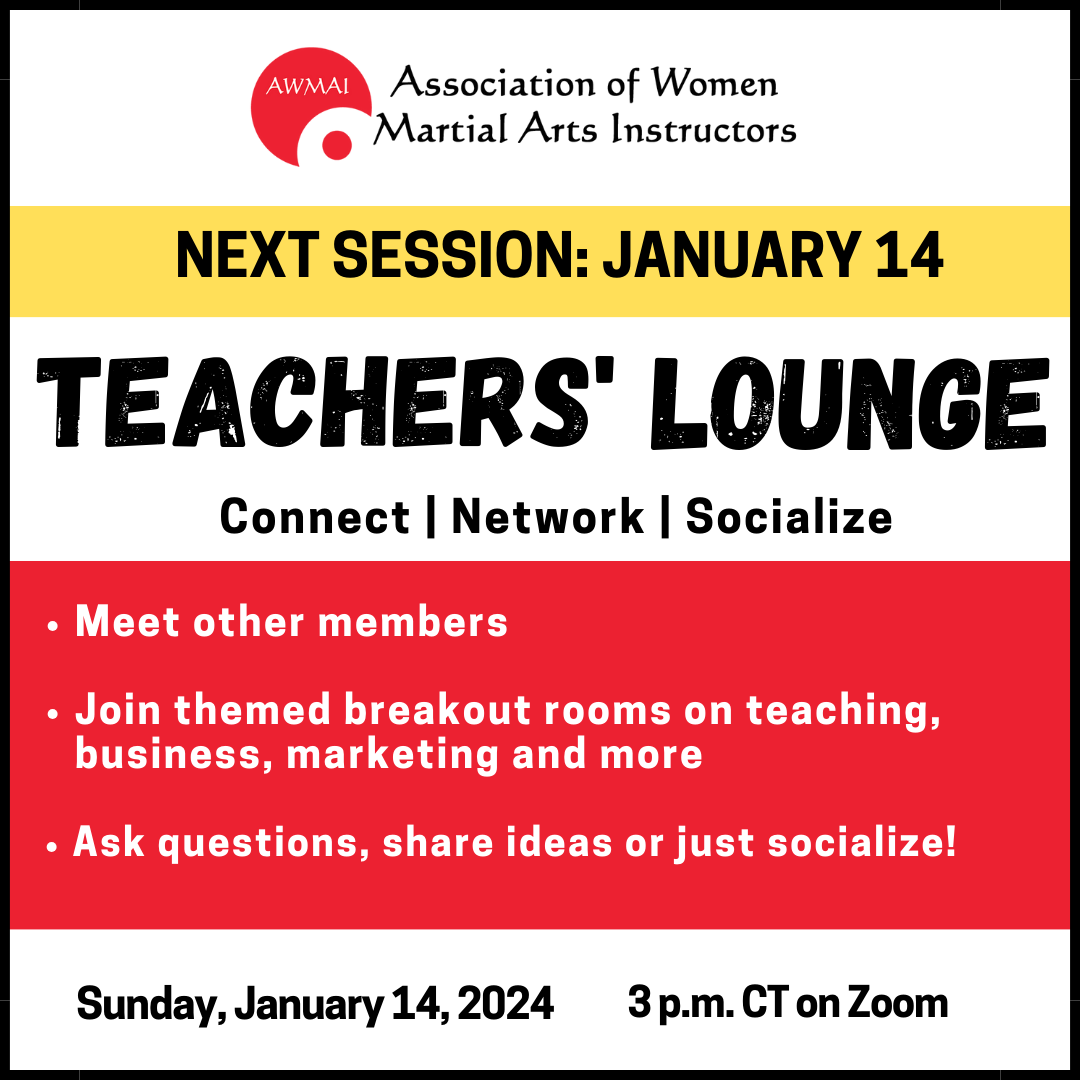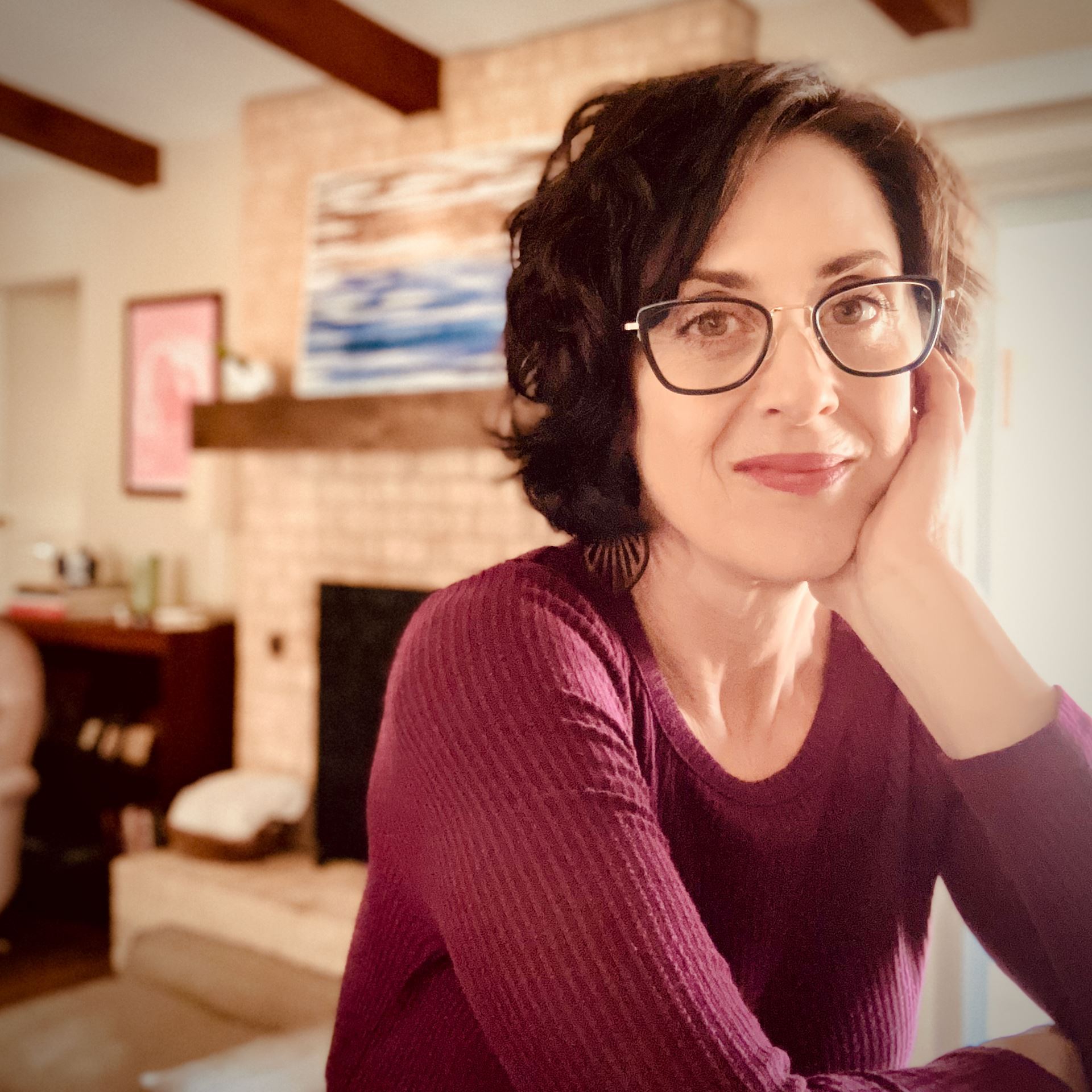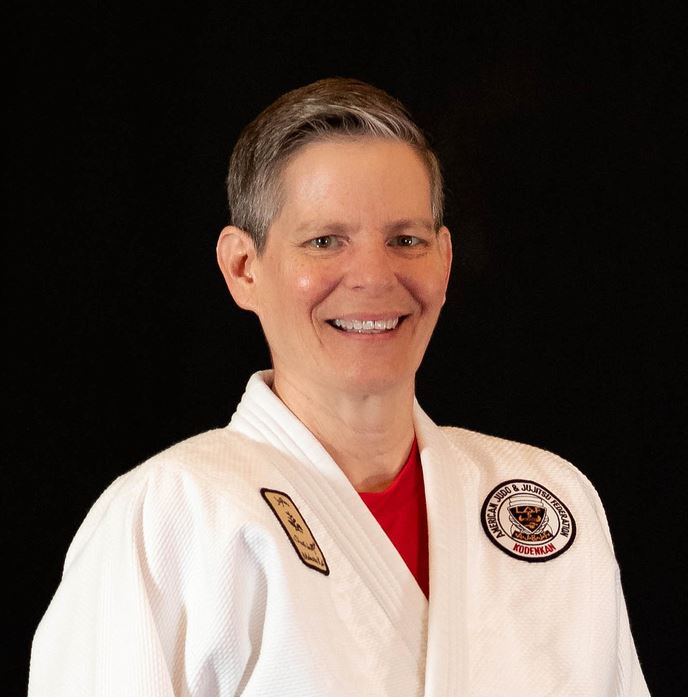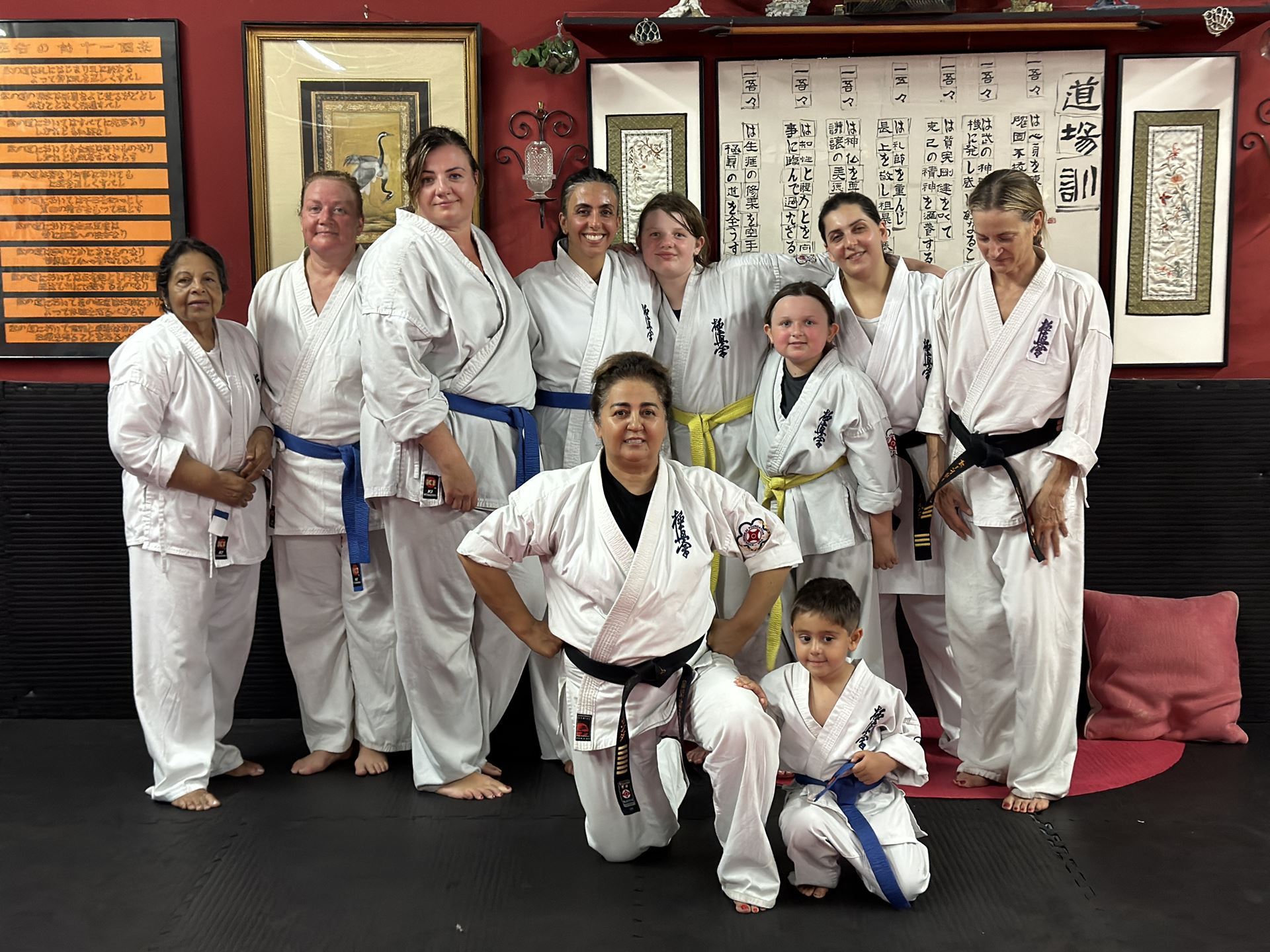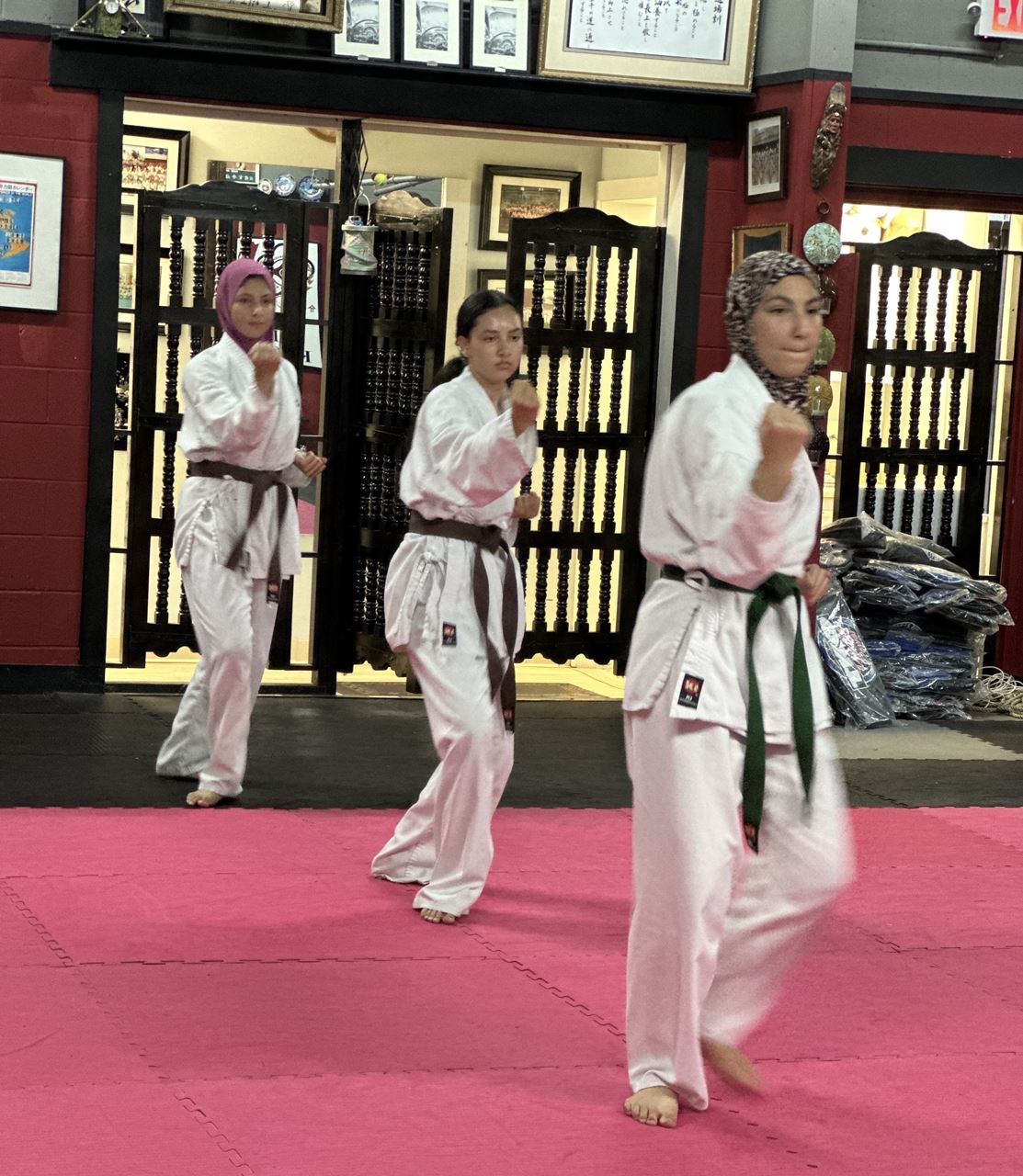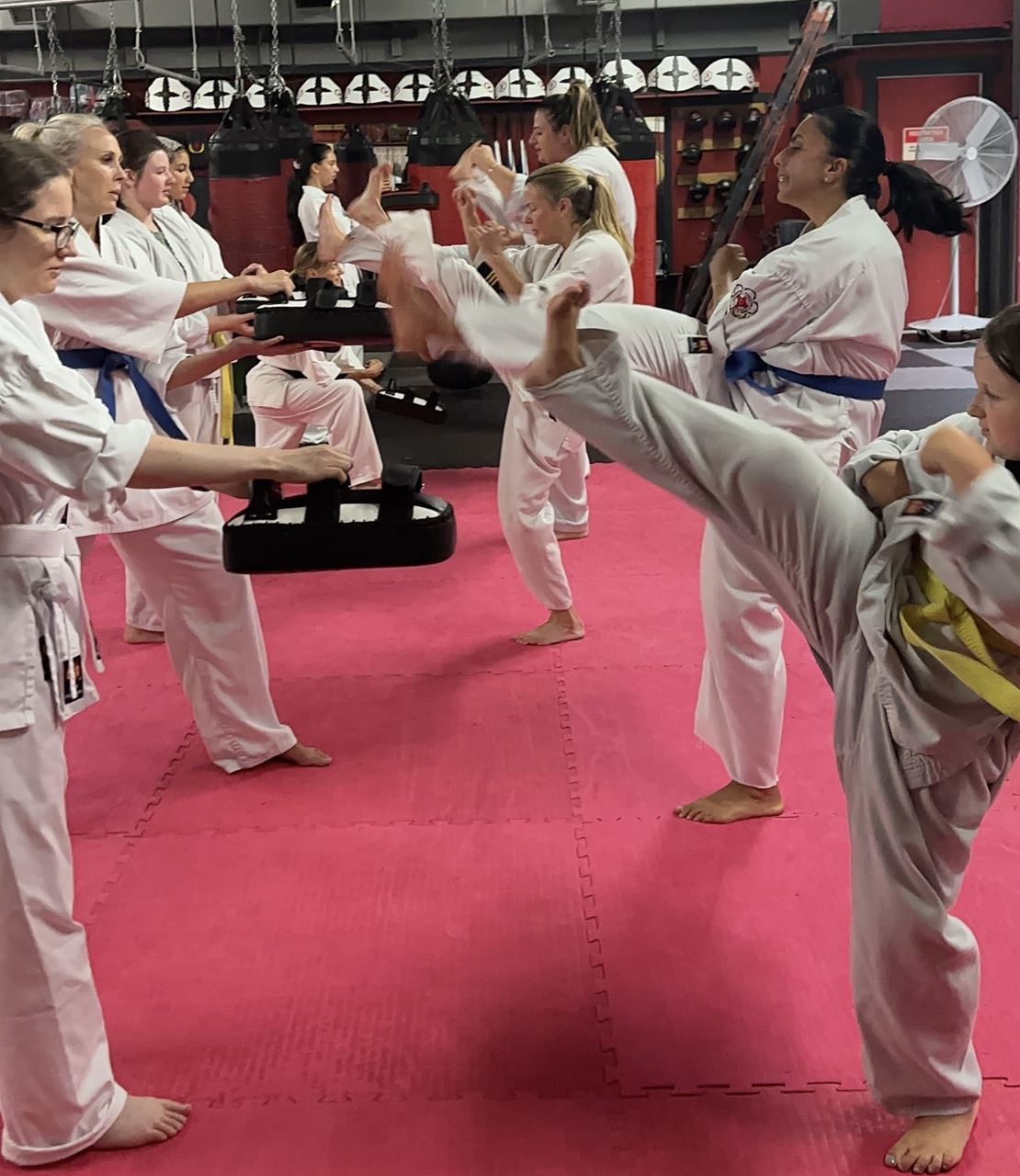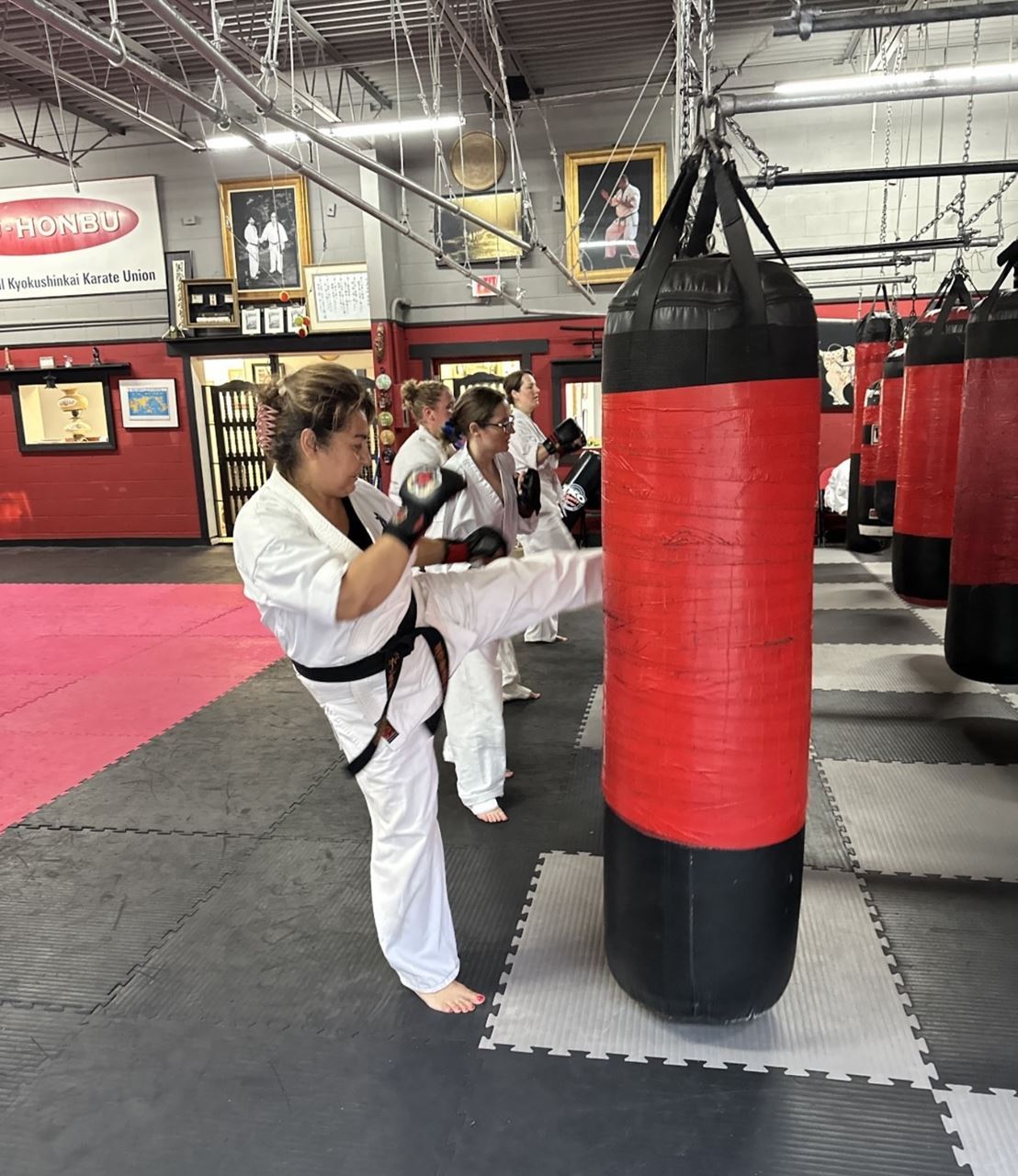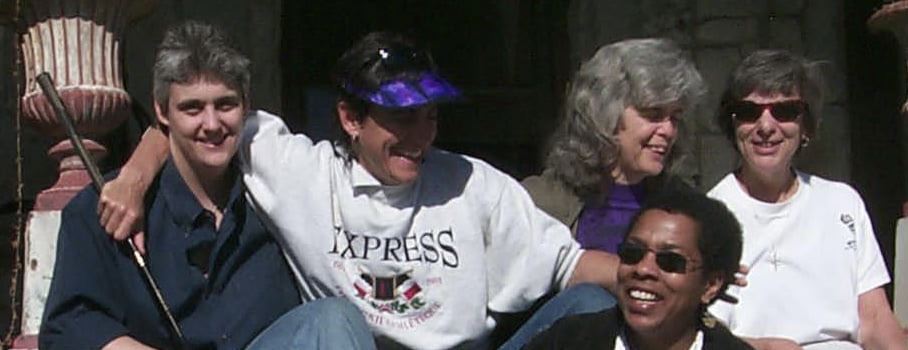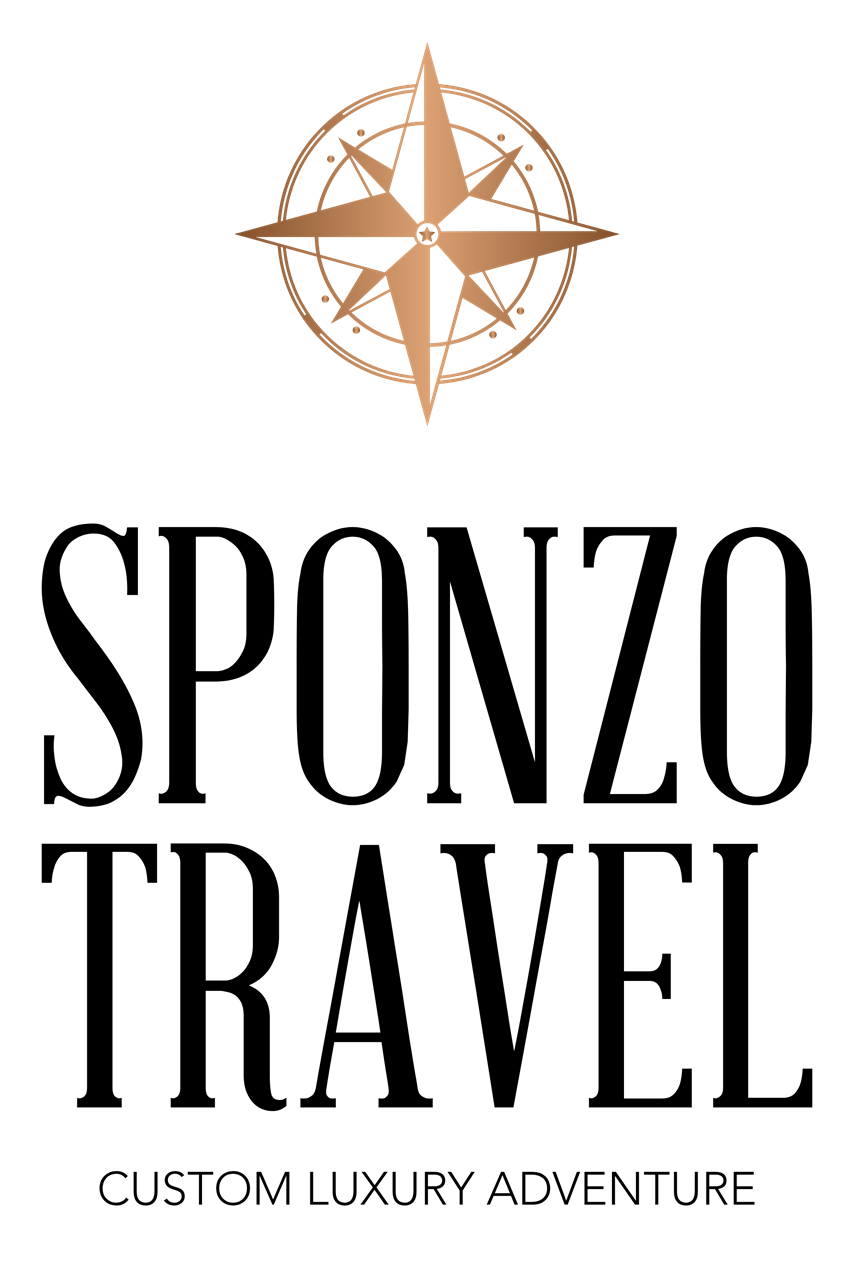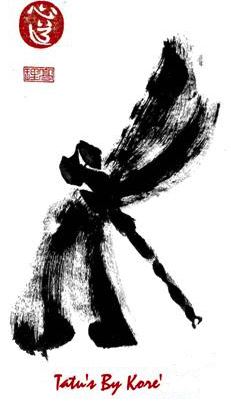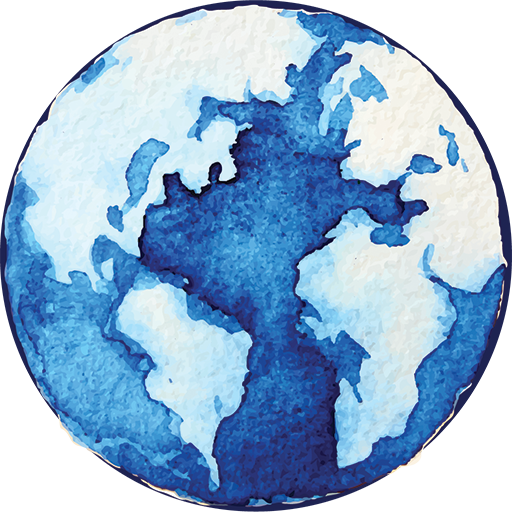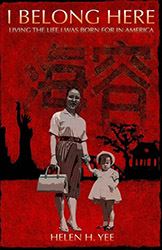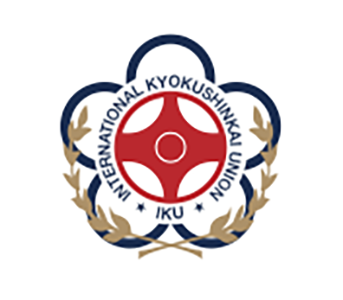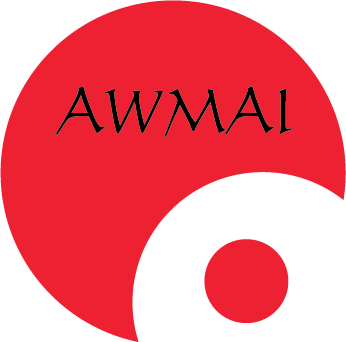Home | Join | Subscribe | Contact Us |
In This Issue:From AWMAI Board:
|
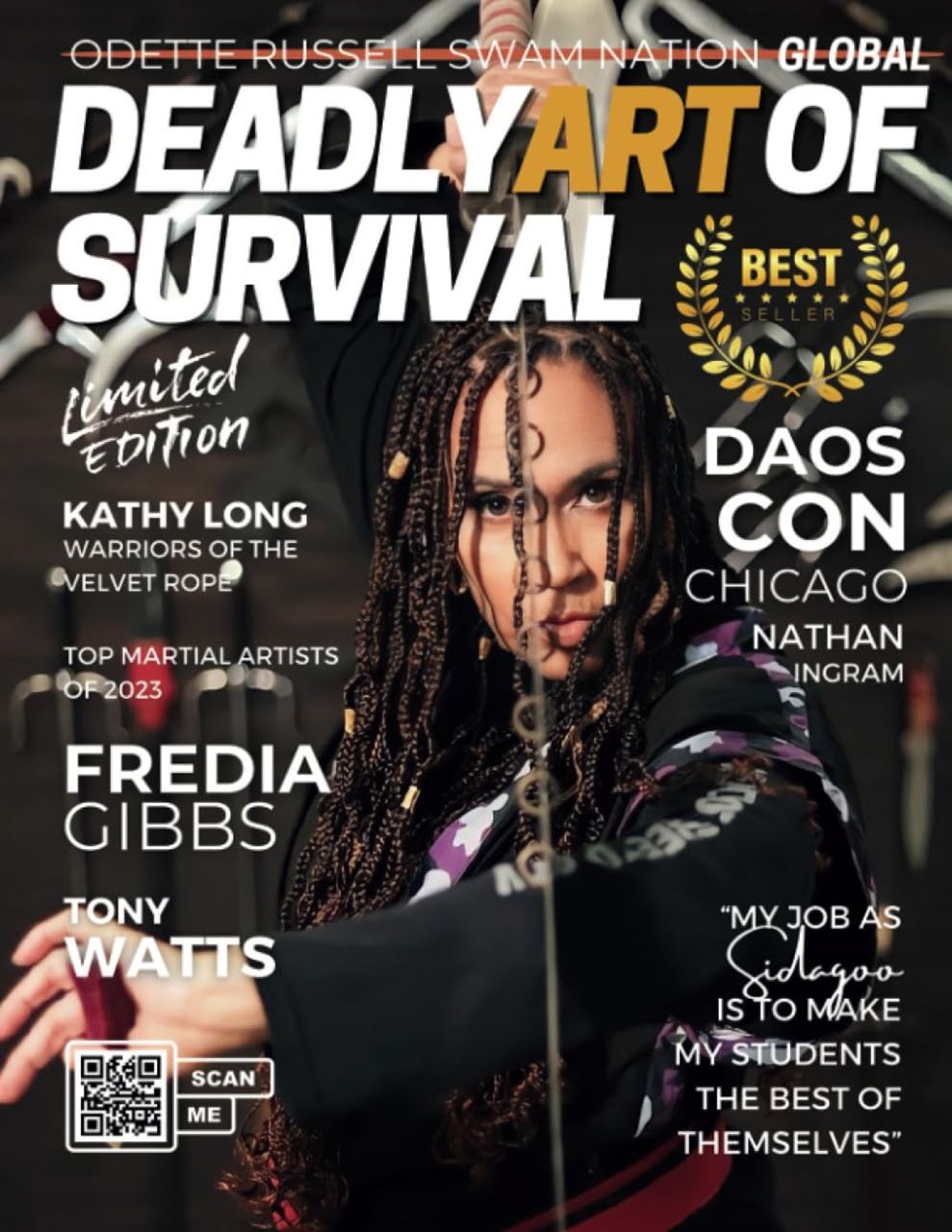
Members Featured in Deadly Art of Survival
by Hanshi Zosia Gorbaty
Three of AWMAI’s members were featured in the August 22, 2023 edition of the #1 selling martial arts magazine, Deadly Art of Survival, 14th Edition.
Grandmaster Odette Russell stars on the cover with a great article inside. Sifu Kathy Long and Hanshi Zosia Gorbaty each have several pages of photos and articles. Gorbaty mentioned the AWMAI Hall of Fame in hopes to help spread the word about AWMAI!
Order this issue from Deadly Art of Survival.
| Sunday, January 14, 2024 5 am Australia Central 1 pm Pacific 2 pm Mountain 3 pm Central 4 pm Eastern 10 pm Central European |
Self-Defense Instructor or Psychotherapist? by Janet Nelson, MSW, LCSW, ACSW, 4th Degree Black Belt More simply put, suffering exists; it has a cause; it has an end; and it has a cause to bring about its end. The notion of suffering is not intended to convey a negative world view, but rather, a pragmatic perspective that deals with the world as it is and, attempts to rectify it. Dukkha-dukkha means the suffering of suffering. This includes the physical and emotional discomfort or pain all humans experience in our lives. If trauma is central to I’ve taught community self-defense since 1979. I have also worked as a state licensed and nationally certified social worker and psychotherapist with women and girls for thirty years. I’ve conducted group and individual therapy with women in domestic violence shelters, and sexual assault treatment programs, women who prostitute themselves, or who have endured sex trafficking. I’ve worked with teen girls who have endured abuse and neglect, witnessed murders, suffered grief and loss by being displaced from their homes and placed in foster care, watched their parents get addicted, incarcerated and a variety of other tragic experiences. I have treated many girls and women who suffered some of the toughest, most heinous events that life can throw at us. What have I learned? We cannot assume that everyone who endures these events should be clumped in a framework of “traumatized survivor” with wounds so deep that they are not able to advocate, assert, and move past their trauma. Traumatic experiences do not necessarily debilitate us. Teaching self-defense with the assumption that participants are all traumatized survivors has the potential to weaken us. It puts us in a position of victimhood with a victim mentality that keeps us down, depressed and diminished. We must be very careful with this approach. Though we must be sensitive to a person’s past trauma, we cannot cross into therapeutic treatment that we are not qualified to conduct. We are not practitioners of Trauma Informed Care (TIC). We are not trained in the treatment of the aftermath or pathologies of Adverse Childhood Experiences (ACEs). By being “appropriately sensitive” as self-defense instructors to what might offend, trigger, re-traumatize or hurt people’s feelings, we are assuming a great responsibility for the emotional well-being of the student. Do we really have that much power to control how someone might perceive our well-intentioned words? I offer this: If you are going to open that door, you better know how to close it! As martial artists and instructors of self-defense, it is certainly our goal to show compassion to the suffering that any of our students have endured. Our teaching is done with the intention of helping people recognize their strength, their power and their capability to build resilience (a topic for another article!). My concern is that if we over-focus on a culture of victimhood -- where traumatic experiences are what identify us -- we will make it hard on ourselves to cultivate personal growth and inner strength in our students. Model confidence, build fortitude, show good boundaries and be willing to listen, but don’t confuse self-defense instruction with psychotherapy. Editor's Note: Having a list of trauma informed professionals to give to students and to give to students that may be challenged emotionally by the class content can help support our students. Calling 211 for community information & referral is available nationwide. | Jennie Trower A very warm hello to each and every one of you. As I sit down to write this article, there is ongoing conflict in the Middle East that is resulting in thousands of civilian casualties and displaced communities. I know there are AWMAI members in that area who are doing incredible work to prevent violence and promote peace, even and especially during this horrific time. I appreciate you and all you do, and I’m thinking of you, your families and your communities. One way that we can build community and support each other is through the Teachers’ Lounge. These are members-only events that include a general discussion and themed breakout rooms. They are a great place to ask questions, get advice and share helpful ideas. If you’ve been attending, thank you. Your presence and your valuable input have helped make this initiative so successful. If you haven’t yet participated in one, I invite you to join us. The next one will be in January 14, 2024 – stay tuned for more information. With so many holidays rapidly approaching, things are getting busy. Be sure to keep these important dates in mind:
If you are reading this newsletter but not yet a member of AWMAI, we welcome you to check us out and see if our organization is a good fit for you. Katie Murphy Stevens |
|
|
|
New Book!
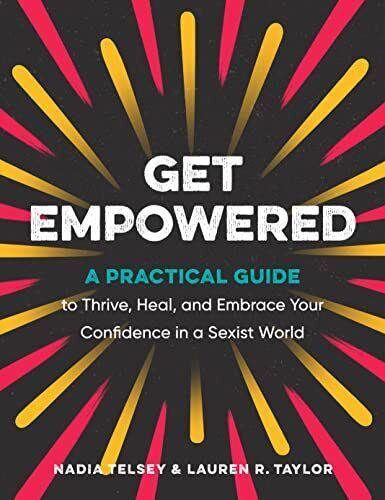 Get Empowered: A Practical Guide to Thrive, Heal, and Embrace Your Confidence in a Sexist World
Get Empowered: A Practical Guide to Thrive, Heal, and Embrace Your Confidence in a Sexist World
by Lauren Taylor
A practical guide for women, nonbinary, and LGBTQIA+ people to claim our right to be safe, to take up space, and to speak up for ourselves.
Don’t walk alone at night. Don’t leave your drink unattended. Don’t hurt anyone’s feelings.
Most women and nonbinary people are taught these rules, intended to keep us safe from harassment, abuse, and assault, from a young age. While the #MeToo movement has shined a light on the pervasiveness of gender-based violence that led to these “rules,” the fears persist—and for good reason.
While men—who commit almost all gender-based violence—are the ones who should be responsible for ending it, those of us who are targeted shouldn’t have to wait for the world to change in order to live safer, fuller, more-authentic lives.
Through real-life stories, meaningful questions, and interactive exercises, Get Empowered will teach readers how to:
- understand why gendered violence exists and how it shows up
- take up space
- say what they want
- let go of self-blame
- heal from past traumas.
Whether you’re looking for ways to stand up for yourself, you’re a survivor focused on healing, or you’re committed to being an ally, this book will give you the tools you need to thrive.
Welcome to the SiDaGooExperience: Willpower, Its role towards Martial Artists
by Grandmaster Odette Russell, PhD
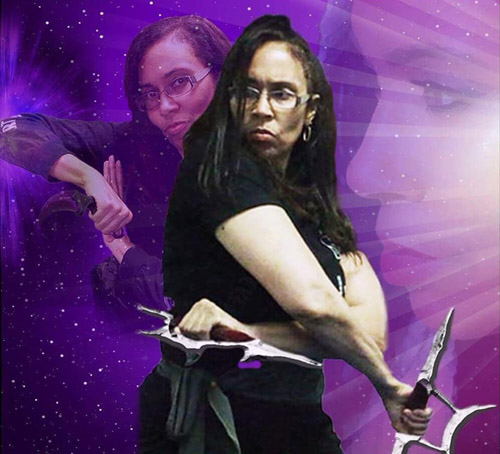
The one thing most people believe in is if they practice willpower against unhealthy temptations, their lives will improve. A common example is trying to lose unwanted pounds but are unsuccessful due to the lack of willpower to stick to a heathy diet. As martial artists, we believe we understand the practice of willpower better than most individuals as we showcase it through dedication of endless hours in our training and teaching. But interestingly enough, for some of us, when it comes to other aspects of our lives outside of the martial arts — for example parenting, maintaining a monogamous relationship, eating right, exercising for fitness, avoiding drugs and alcohol, and saving for retirement — our willpower is thrown out the window. This makes no sense. How can a person practice willpower when it comes to staying in a dojo for five hours to train instead of hanging with friends, but show lack of willpower in regards to choosing a healthy salad over a greasy burger?
There are actually good reasons why some individuals can show excellent self-control in one aspect of their lives and none in another. Let’s first define willpower: it’s the ability to resist short-term urges to reach long-term goals, basically delay gratification. The benefit of practicing willpower, also known as self-control and self-discipline, is to avoid activities that could develop into future consequences. There are studies that have found that those who practice willpower as children had better grades and grow into successful adults. Do these results also apply to martial artists who started training as children and continued to commit to a martial arts’ lifestyle as they grew into adults? Each of us knows gifted and dedicated martial artists who demonstrates willpower towards their martial arts training, however, they do not apply this same dedication to other important aspects in their lives. The consequences that they deal with as adults can range from strained family relationships, substance abuse issues, criminal records, self-inflicted illnesses, and/or poverty. Let’s understand how willpower works to try to fathom why a person can demonstrate self-discipline in one area and not in another. One of the most important aspects of willpower is that it can become depleted, yes it has limitations. This is why someone can show self-control to avoid eating certain foods all day but by nightfall their willpower is exhausted and they end up overeating anything they can find access to. Could it be possible that by the time a martial artist finished dedicating hours of
vigorous training that they don’t have the willpower to resist other temptations, like eating that greasy burger?
Also, willpower can only be tested when temptation is present. Many people believe they practice self-control, however, their reaching their goals was not due to demonstrating willpower, but in not experiencing temptations that may have derailed them from their goals. For example, a husband who never cheated on his wife may believe he has willpower to be faithful. But if he was never seduced by someone from outside his marriage, his willpower was never challenged with temptation. He may cheat once he encounters a sexual enticement. Another fact about willpower, or the lack of willpower, is that it can be driven by ego and selfishness. This person’s desire to practice willpower is only motivated by improving their own personal needs, so, for example, taking their children to the movies won’t prioritize training. The lack of balance in how they practice willpower will not only hurt their loved ones but also lead to future unrepairable consequences as previously mentioned.
The balance we work on building as martial artists relating to spiritual, mental and physical has to also apply to our personal lives. We are martial arts’ leaders that also need to lead as fathers, mothers, sons, daughters, community activists, dependable employees, wives and husbands. Let’s set the example not only as skillful martial artists but also as caring
individuals that want what’s best for mankind. In conclusion, let’s strengthen our willpower so it won’t become depleted against overpowering unhealthy temptations. Here are some tips on ways to strengthen your willpower:
- Remove yourself from temptation
- Break down the temptations into manageable pieces
- Don’t react to urges. Urges only last a couple of minutes so if you do not react to them right away, the urge will pass. If urges are intense alter your thoughts by engaging in another activity.
- Anticipate roadblocks with plans to manage them build positive social network
- Meditate to help to improve focus
- Get enough sleep
- Exercise/Eat healthy, willpower requires energy
Parnee Poet
I don't have a lot of words for this issue except that I hope we continually look for ways to help the living beings on this planet, especially the defenseless. I continue to be inspired by the martial artists and self defense teachers that are digging deep with the hardwork and listening that it takes to be a protector, as I think of every being, including the land and animals suffering, especially in Myanmar, Congo, Sudan, Lahaina, Ireland, Palestine and Israel.
I hope we can do more as we gather in Columbus, Ohio; and get ready to combine forces to see how we can improve together, April 12-14, 2024.

